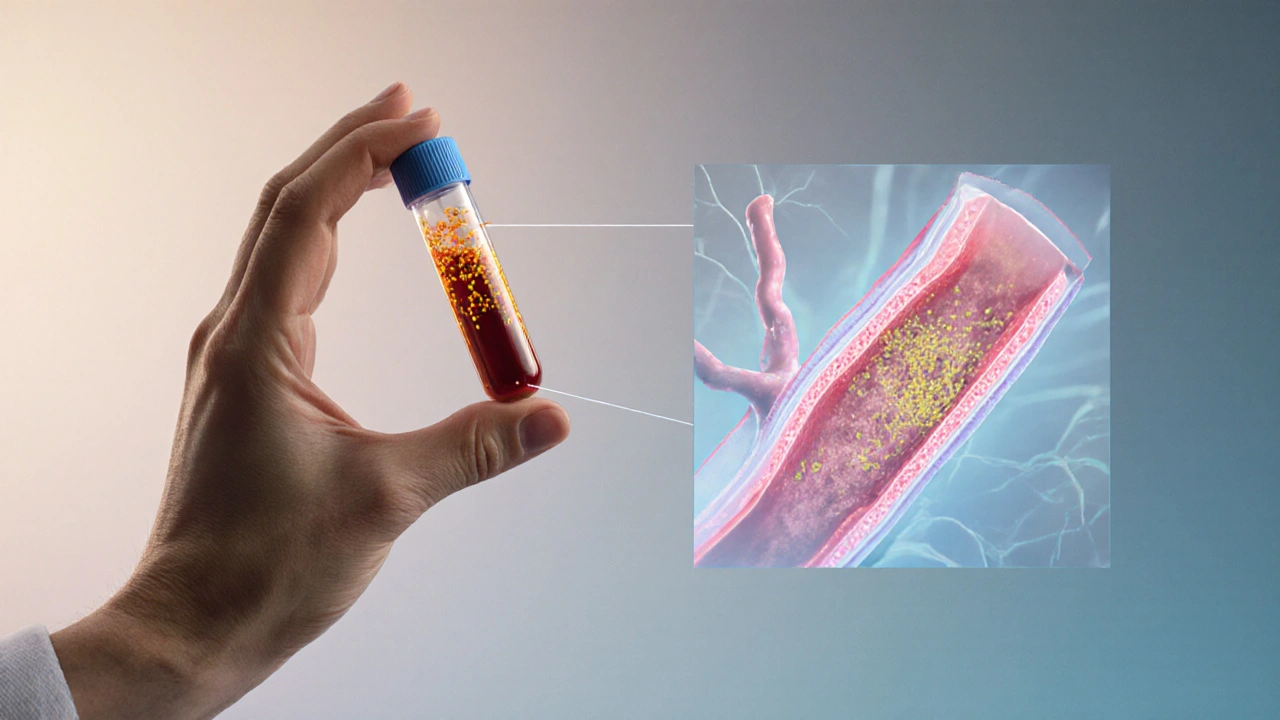Explore how high cholesterol drives plaque buildup, leading to coronary artery disease, and learn practical lifestyle and medical steps to protect your heart.
Atherosclerosis: Causes, Risks, and How Statins Like Rosuvastatin Help
When atherosclerosis, a condition where fatty deposits build up inside arteries, narrowing them and restricting blood flow. Also known as hardening of the arteries, it’s the main reason most heart attacks and strokes happen. This isn’t just aging — it’s a slow, silent process fueled by high cholesterol, high blood pressure, smoking, and diabetes. Left unchecked, it doesn’t just cause chest pain — it can block blood flow to your heart, brain, or legs, sometimes without warning.
One of the biggest players in this process is LDL cholesterol, the "bad" cholesterol that sticks to artery walls and starts forming plaque. Over time, that plaque hardens, cracks, and can trigger a clot — the kind that causes sudden heart attacks. That’s where rosuvastatin, a powerful statin medication that lowers LDL and also reduces inflammation in blood vessels. comes in. Studies show it doesn’t just lower numbers — it actually slows down plaque growth and lowers the risk of major heart events by up to 30% in high-risk people. It’s not magic, but it’s one of the most proven tools doctors have.
Atherosclerosis doesn’t happen in a vacuum. It’s tied to other conditions you might already be managing — like high blood pressure, obesity, or even chronic kidney disease. That’s why many of the guides here focus on how these issues connect. For example, some posts look at how plant-based diets, rich in fiber, nuts, and vegetables, can naturally lower cholesterol and reduce arterial inflammation. Others break down how rosuvastatin, like other statins, affects inflammation markers like CRP. — showing it’s not just about cholesterol numbers. Even lifestyle changes like quitting smoking or walking daily can make a measurable difference in how fast plaque builds up.
You won’t find fluff here. What you will find are clear, no-nonsense comparisons: how rosuvastatin stacks up against other statins, how diet choices impact artery health, and what really works when you’re trying to stop atherosclerosis in its tracks. Whether you’re newly diagnosed, managing long-term risk, or helping someone else navigate this, the guides below give you real-world insights — not theory. You’ll learn what to ask your doctor, what to watch for, and how to make choices that actually matter.

